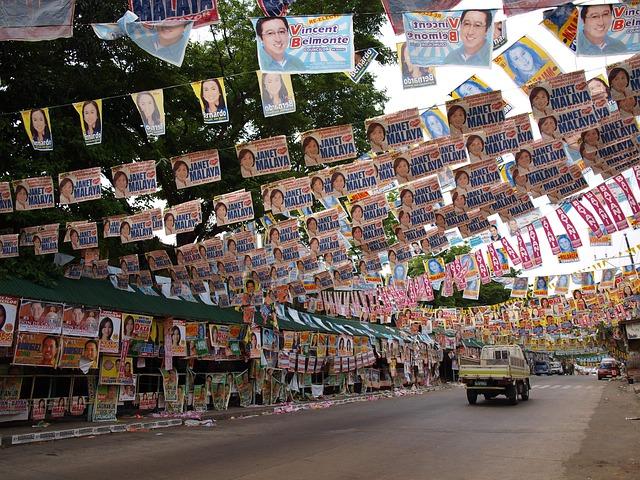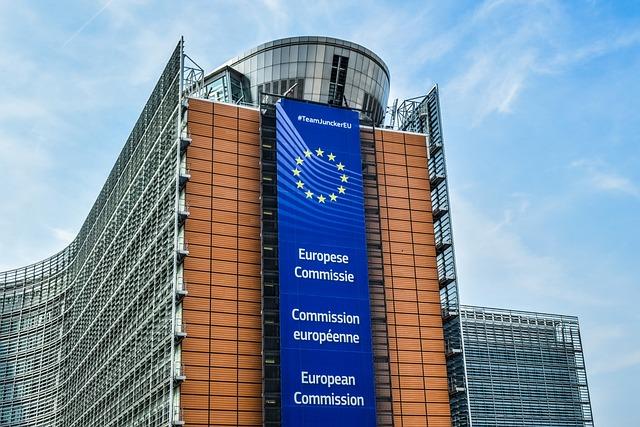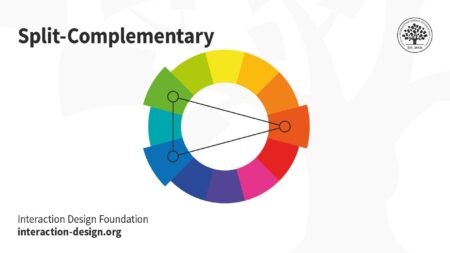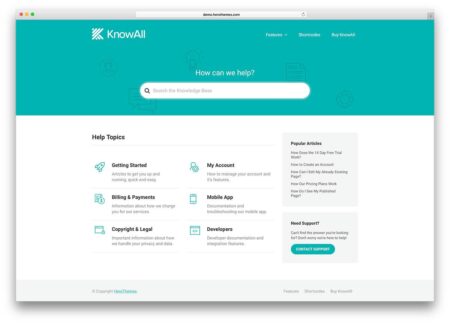The 38th African Union (AU) summit commenced in Addis Ababa, Ethiopia, with a spotlight on pivotal themes of justice and leadership as member states gather to address pressing continental issues. This year‚Äôs summit not only serves as a platform for discussing governance and legal frameworks but also anticipates key elections that will shape the leadership landscape of the organization. Delegates from across the continent are convening to engage in dialog aimed at promoting peace, security, and enduring development, while also reinforcing the AU’s commitment to enhancing judicial systems across Africa. As discussions unfold, the outcomes of this summit may define the trajectory of the AU’s initiatives and influence the broader socio-political climate within the region.
AU Summit Launches critical Dialogue on Justice and Governance
The 38th African Union (AU) summit, held in Addis Ababa, has sparked essential conversations regarding the intricate relationship between justice and governance across the continent. As leaders gather, the dialogue centers on improving legal frameworks and fostering accountability in leadership. Delegates emphasize the need to enhance openness and integrity within governmental institutions,ensuring that the rule of law is upheld in all member states. The summit serves as a platform for sharing best practices, addressing challenges, and proposing strategic initiatives that aim to transform governance structures across Africa.
In a series of panel discussions and workshops, attendees highlighted several key themes, including:
- The Role of Youth: Engaging young leaders in governance to harness fresh ideas.
- Women’s empowerment: Increasing female representation in political and judicial spheres.
- Anti-Corruption Measures: Implementing stronger mechanisms to combat corruption at all levels.
Furthermore, a dedicated session was held to outline the upcoming leadership elections, where participants expressed the meaning of fair electoral processes. By ensuring that these elections are conducted with transparency and equity, the AU aims to foster greater political stability and public trust in governance systems across the region.

Elections and Leadership Transition: Key Issues on the Agenda
The discussions at this year’s summit are anchored around critical aspects of electoral integrity and the subsequent transfer of leadership across the continent.The participating leaders are expected to address the pressing need for transparent electoral processes and mechanisms that ensure fair representation. Key topics under consideration include:
- Promotion of democratic practices: Establishing guidelines for free and fair elections.
- Strengthening of electoral commissions: Ensuring their independence and capability to manage elections effectively.
- Engagement of civil society: Encouraging citizen involvement in monitoring electoral processes.
Another focal point will be the importance of effective leadership transitions, which often influence stability and governance. By promoting a culture of accountability and democratic transitions, the AU aims to mitigate risks of political unrest that can arise from contested elections. Topics likely to surface include:
| Leadership Transition Issues | Description |
|---|---|
| Political Stability | Ensuring smooth transitions to prevent conflict. |
| Public Acceptance | Fostering trust in the electoral process and outcomes. |
| International observers | Inviting global oversight to enhance credibility. |

Strengthening Continental Unity: The Role of Justice in African Development
as the 38th AU summit unfolds in Addis Ababa, the spotlight on justice emerges as a cornerstone for strengthening unity across the continent.Africa’s interconnectedness is intricate, yet the role of judicial systems is paramount in fostering collaboration among nations. This summit’s focus on justice is pivotal not only for resolving conflicts but also for upholding human rights and ensuring equitable governance.By instituting a unified legal framework, member states can considerably enhance compliance with international norms, thereby reinforcing a shared identity and purpose.
The significance of leadership elections in this context cannot be understated. They serve as a reflection of democratic values and the collective aspirations of African nations for robust self-determination. The African Union’s commitment to sexual and gender-based violence (SGBV), anti-corruption measures, and transparency will be highlighted during discussions. Key themes include:
- Eradicating Impunity: Strengthening judicial accountability at all levels.
- Promoting Civic Engagement: Encouraging citizen participation in governance.
- Institutional Reforms: Revamping legal frameworks to better serve populations.
- Regional Cooperation: Building alliances to tackle cross-border crimes.
.table-class {
width: 100%;
border-collapse: collapse;
}
.table-class th, .table-class td {
border: 1px solid #dddddd;
text-align: left;
padding: 8px;
}
.table-class th {
background-color: #f2f2f2;
}
| Challenge | Response |
|---|---|
| Corruption | Implementation of stringent anti-corruption laws |
| human Rights Violations | Strengthening of judicial accountability |
| Operational Inefficiencies | Investment in judicial infrastructure and training |

Recommendations for Enhancing Electoral Integrity in Africa
To bolster the integrity of elections across the African continent, several actionable recommendations should be considered. First,enhancing the transparency of electoral processes is crucial; this can be achieved through the rigorous monitoring of elections by self-reliant observers. Empowering civil society organizations to participate actively in the electoral process can also promote accountability and credibility.Furthermore, the adoption of advanced technology to facilitate electronic voting and secure ballot counting systems can reduce the potential for fraud.
Along with technological improvements, it is essential to focus on education and awareness campaigns targeting voters. This includes nurturing a culture of civic responsibility through initiatives that inform citizens of their rights and the importance of their participation in the electoral process. Governments should also prioritize legislative reforms aimed at eliminating politically motivated violence against voters and candidates. Table 1 below summarizes key stakeholders and their roles in enhancing electoral integrity:
| Stakeholder | Role |
|---|---|
| Governments | Implement legislative reforms |
| Civil Society organizations | Monitor elections and advocate for transparency |
| Voters | Engage in the electoral process |
| International Observers | Provide independent assessments |

The Significance of Addis Ababa as a Hub for African diplomacy
Addis Ababa stands as a pivotal center for African diplomacy, earning the title of the “political capital of Africa.” The presence of the african Union (AU) headquarters in the city enhances its role in fostering collaboration among African nations and addressing continental challenges. With notable organizations headquartered in the city, such as the United Nations economic Commission for Africa (UNECA), Addis Ababa serves as a vibrant forum for dialogue on pressing issues like economic development, peace and security, and human rights. This unique positioning enables the city to attract leaders and diplomats from across the continent, facilitating discussions that aim to forge strategic alliances and unify efforts in tackling shared crises.
Furthermore, the ancient significance of the city as a site for conflict resolution and peace talks has solidified its reputation in global diplomacy. Events such as the AU summit, which gathers heads of state and government leaders, showcase its importance as a platform for elections of leadership positions and the implementation of justice initiatives across Africa. The summit serves not only as a legislative assembly, but also as a catalyst for policy formulation that can improve governance and stability. Inspired by its status, various initiatives have emerged in the city, focusing on:
- Promoting regional cooperation.
- Facilitating dialogues on peace-building.
- Encouraging sustainable development strategies.

Looking Ahead: Future Challenges and Opportunities for the African Union
The African Union (AU) stands at a pivotal juncture as it navigates a landscape marked by both daunting challenges and significant opportunities. Among the foremost challenges is the need for enhanced governance and accountability across member states. Corruption, electoral disputes, and human rights violations remain persistent issues that undermine progress and trust in leadership. The AU must bolster its mechanisms for conflict resolution and ensure that its member states adhere to the principles of democracy and rule of law. Additionally, as climate change accelerates, the AU is tasked with addressing its impact on security, food systems, and migration within the continent.
Despite these hurdles, the potential for transformative change within the AU is promising. The organization can capitalize on technological advancements to improve interaction and governance. Initiatives like the African Continental Free Trade Area (AfCFTA) represent a substantial possibility for economic integration and development. Furthermore, building partnerships with regional and global actors could amplify the AU’s voice on the world stage, allowing African nations to better advocate for their interests. Focused efforts in areas such as youth engagement, innovation, and sustainable development will be crucial for the AU to not only overcome its current challenges but also to position itself as a leader in addressing global issues.
| Challenges | Opportunities |
|---|---|
| Corruption and Governance Issues | Implementation of afcfta for Trade Growth |
| Human Rights Violations | Use of Technology in Governance |
| Climate Change Effects | partnerships for Sustainability Initiatives |
| Electoral disputes | Youth Engagement in Leadership |
Final Thoughts
the 38th African union Summit in Addis Ababa represents a pivotal moment for the continent as leaders converge to address pressing issues of justice and governance. With a focus on leadership elections, the summit aims to establish a unified front against the challenges facing Africa today, including instability, economic growth, and the need for equitable justice systems. As discussions unfold, the outcomes of this summit could shape the political landscape of the continent for years to come, emphasizing the importance of collaboration and accountability among member states. Stakeholders and citizens alike will be watching closely as the African Union seeks to reinforce its role as a beacon of progress and solidarity in the region. The decisions made here may well influence the trajectory of African leadership and the foundation of justice across the continent.







